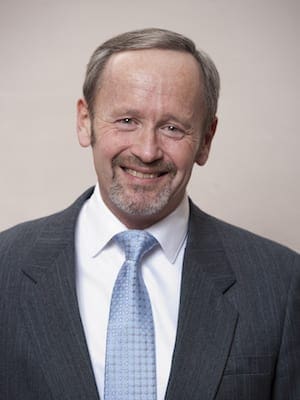Perhaps you’ve heard the phrase, “Begin with the end in mind.”
It was popularized in Stephen Covey’s book, “The Seven Habits of Highly Effective People,” but it’s not a new concept.
Instead of just letting your life unfold and ending up somewhere you didn’t choose or desire to be, you begin by envisioning the end of your life and what it will be like, and then begin making conscious choices to get there.
That’s good advice for just about any endeavor.
Before I begin building a guitar, for example, I envision what I want it to both look and sound like. Before I begin writing, I think through what I want to say. It should also be true of Christian discipleship.
How can you know which path to follow if you don’t have a clear idea of where you are supposed to end up?
Fortunately, we don’t have to wonder because the Bible lays it out pretty clearly. In the final chapters of the Revelation of John, we see God remaking the heavens and the earth, creating a new heaven and new earth.
This isn’t an instance of throwing away the old and starting all over again; it’s a renewal and restoration project. It’s about going back to the beginning.
So, ironically, the Bible doesn’t so much begin with the end in mind, as it ends with the beginning in mind.
Revelation 21, which reveals a new heaven and new earth joined together and God coming to dwell with humans, offers a picture of the restoration of the conditions in Genesis 1.
It is a place of life, not death, where plants, animals and humans flourish and multiply, with God at rest in his temple and humanity taking care of creation.
In fact, it is interesting that humans are the only part of God’s creation given a vocation. Every other plant and animal is to be what they are and to make more of what they are.
Humans are given a similar charge, to be human and to make more humans, but they are given the additional duty of having dominion over creation.
“Dominion” doesn’t mean to exploit and use for one’s own purposes, but rather to tend and take care of, much like a farmer has dominion over his crop or a shepherd has dominion over his sheep.
Every other part of creation did what God set forth for them—except the humans. We didn’t do anything right.
We sought to be like God and ended up being less than human. As a result, the creation soon was filled with violence—so we failed in our caretaking efforts.
The powerful treated the less powerful as sub-human, in the process themselves becoming both less Godlike and less human at the same time.
The flood narrative is God destroying the old and starting from scratch again. When it was over, he said he would never do it again.
So it’s interesting that in the thinking of some Christians, the end will come when God destroys the old and starts from scratch again with a new heaven and new earth.
In the meantime, the thinking goes, the vocation of the Christian is to be a Christian and to make more Christians.
With that as the end in mind, it’s no wonder that our discipleship programs are often limited to those two things.
While important, we were given a further vocation—to take care of God’s creation. Not just the plants and animals, but also each other. This is the end that God has in mind, the same end that he had in mind in the beginning.
But we don’t wait for the end to do our job. As the redeemed, Christians are called to step up to our human vocation in advance of Christ’s coming reign over heaven and earth.
We are called to care for each other: children surrounded by violence, mothers struggling with poverty and the breadwinner downsized to maximize shareholder profits, as well as the plants and animals in need of protection.
If you are going to begin with the end in mind, you better be clear what end God has in mind.
Otherwise, not only will you not get to the right place, you won’t get anywhere at all.
 Larry Eubanks is the pastor of First Baptist Church of Frederick, Maryland. A longer version of this article first appeared on his website and is used with permission. You can follow him on Twitter @EubanksLarry.
Larry Eubanks is the pastor of First Baptist Church of Frederick, Maryland. A longer version of this article first appeared on his website and is used with permission. You can follow him on Twitter @EubanksLarry.

